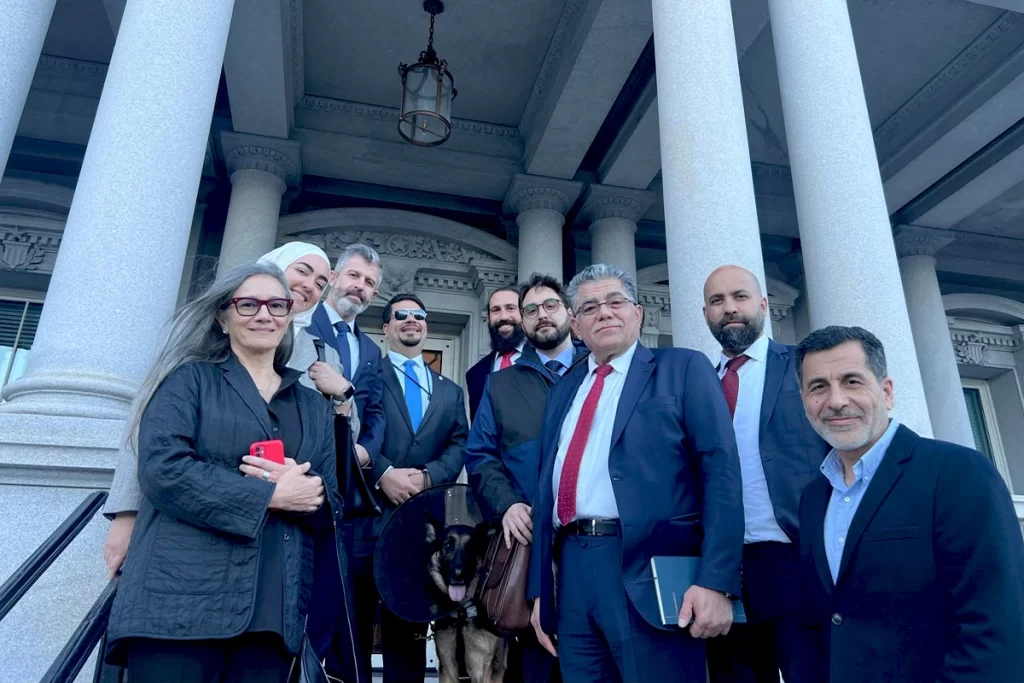The Syrian crisis remains one of the most pressing humanitarian tragedies of our time. Millions of people have been displaced, communities devastated, and countless lives disrupted. Adding to this suffering is the harrowing reality of the forcibly detained and disappeared. Thousands of families live in anguish, waiting for news of loved ones whose whereabouts remain unknown. Advocacy plays an indispensable role in ensuring these stories and the broader suffering of the Syrian people are not overlooked.
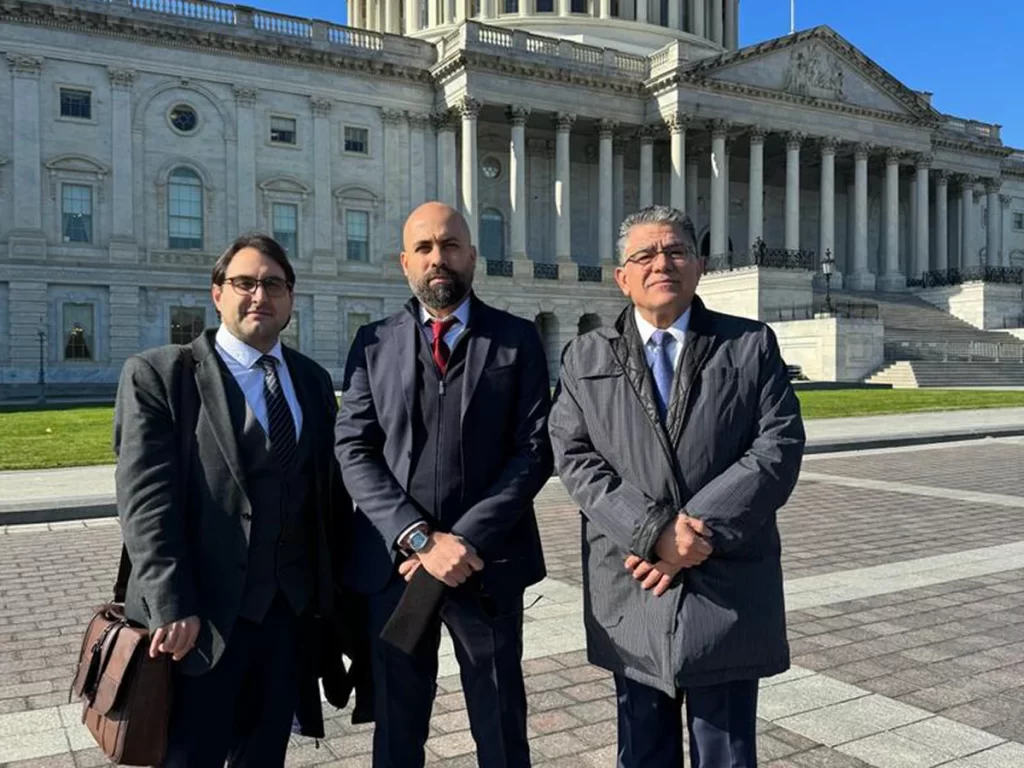
Advocacy is a must for the Syrian cause. It brings global attention to the crisis, demands justice for those forcibly detained, and pushes for decisive action to address the hardships affecting millions. Without advocacy, the voices of those enduring these injustices, as well as the families searching for answers, could be lost in the noise of ongoing conflict.
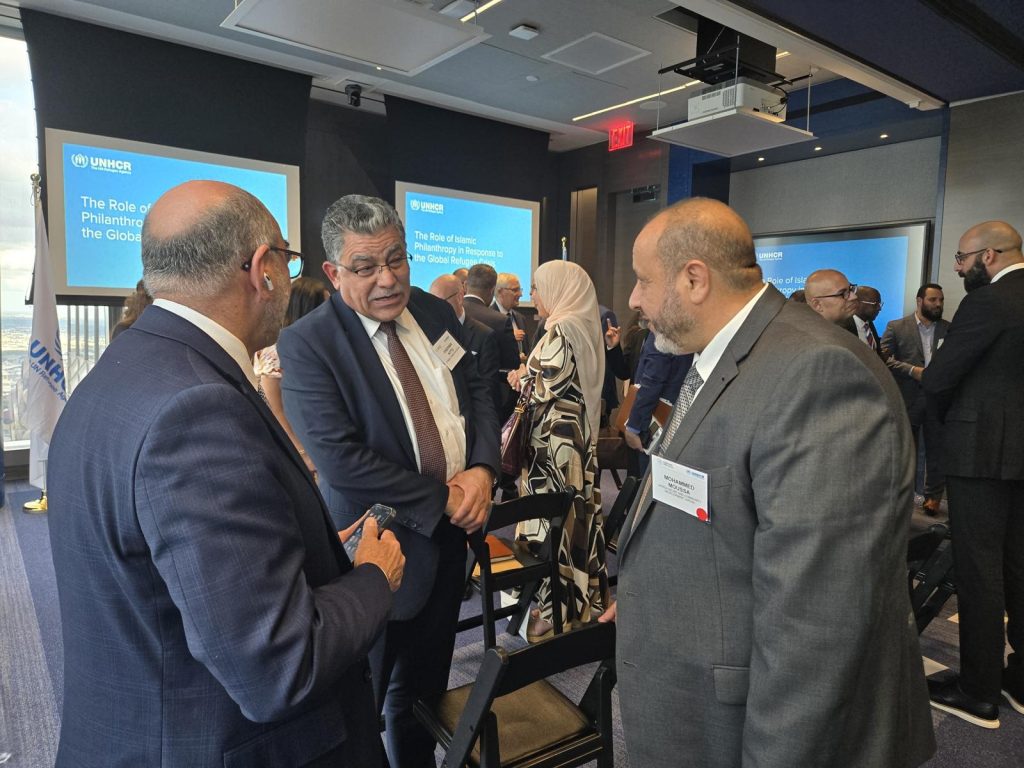
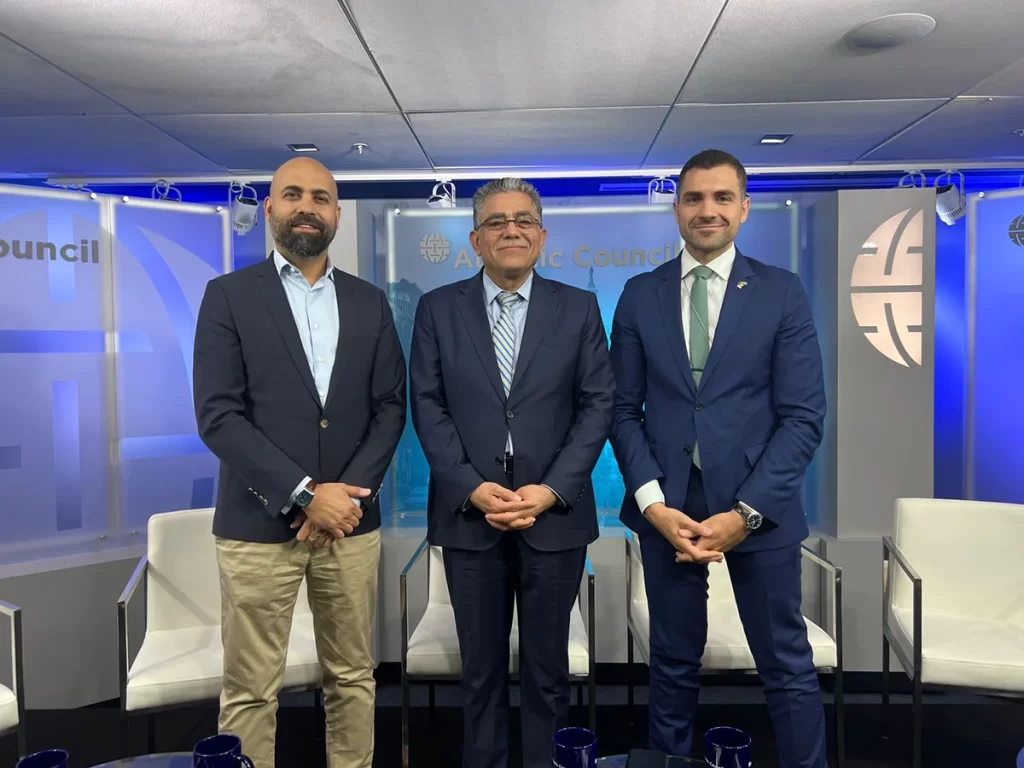
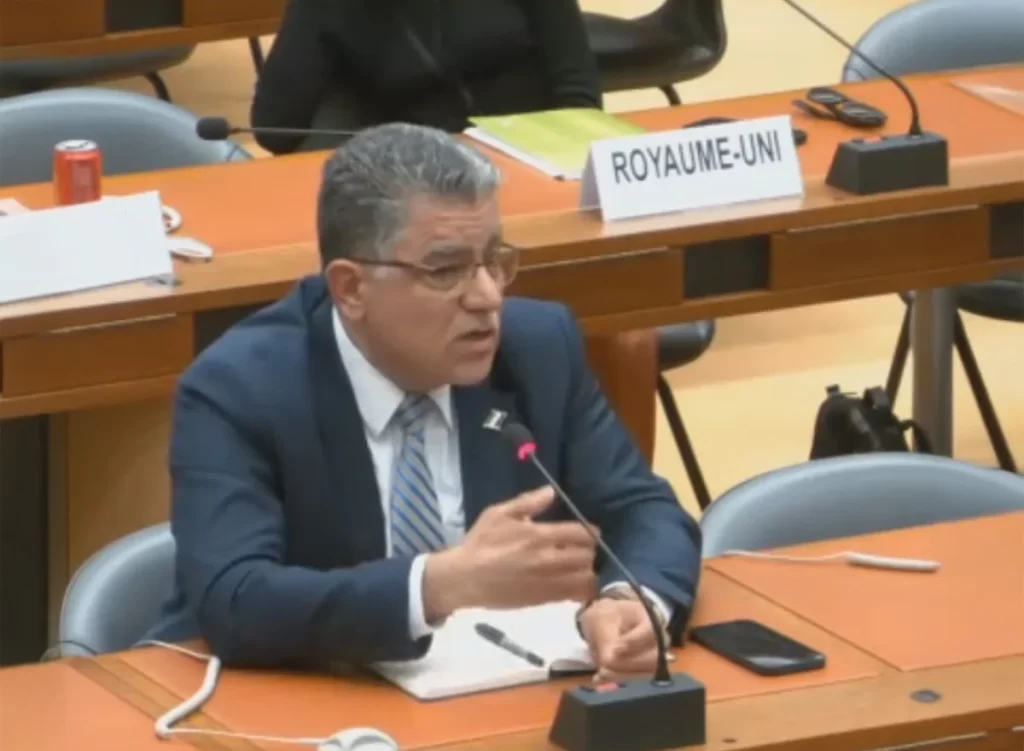
Our advocacy efforts are dedicated to raising awareness, amplifying the Syrian cause, and shedding light on the humanitarian situation in Syria. Through effective advocacy strategies, we seek to foster international cooperation, mobilize resources, and advocate for sustainable solutions to alleviate the suffering of Syrians and rebuild their lives by leveraging various channels and platforms, including media outreach, social media campaigns, and collaborations with influential figures and organizations.
We strive to ensure that the voices of those affected by the crisis are heard and that their stories resonate with the world.

The Syria Sanctions Policy Program
In collaboration with the Observatory of Economic and Political Studies, intensified efforts to foster dialogue on sanctions, aiming to enhance their accountability role while mitigating their unintended consequences on civilians and NGOs.
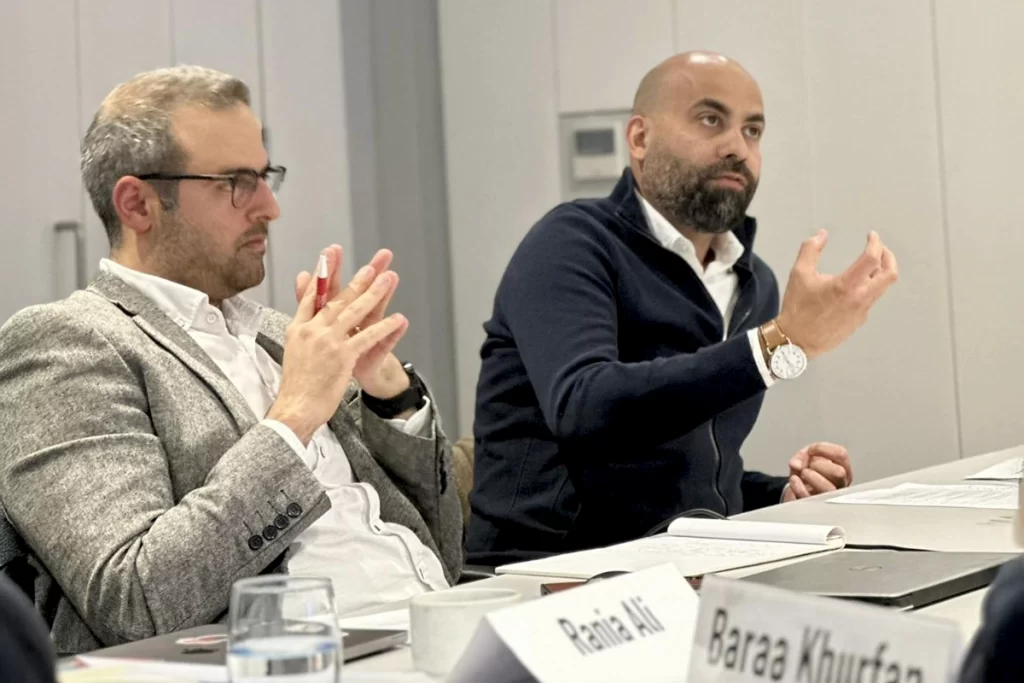
As part of this initiative, we organized two high-level workshops in London with Madanya at Chatham House and Washington, D.C., with The Middle East Institute, bringing together key diplomatic actors and Syrian sanctions experts.
These discussions provided a platform to assess the evolving sanctions landscape, address challenges faced by humanitarian organizations, and explore policy recommendations for more effective and responsible sanctions implementation.
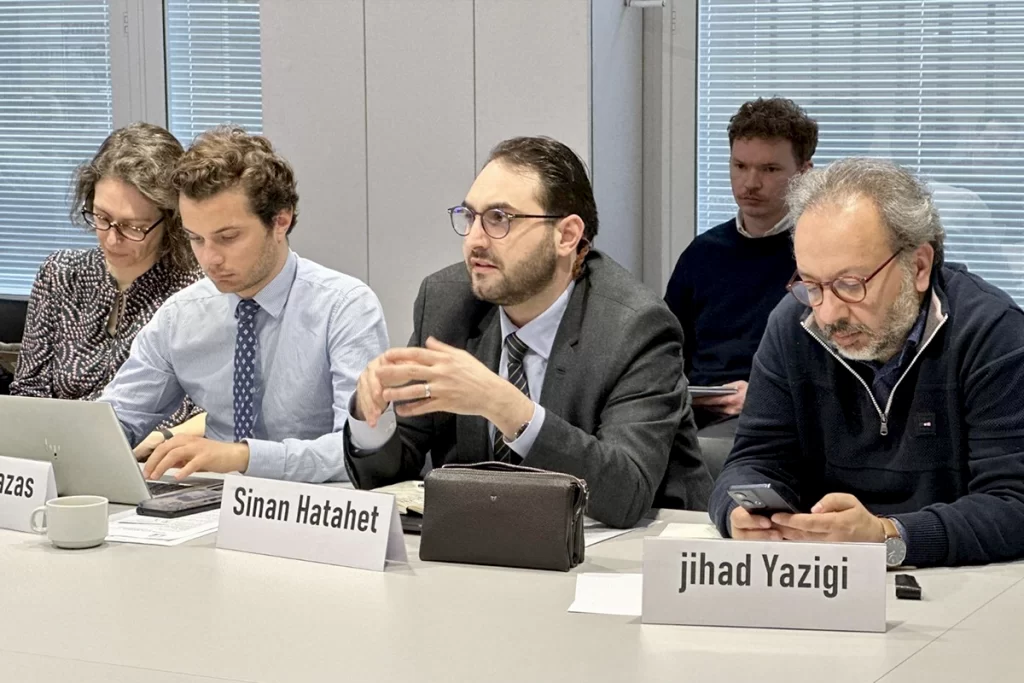
Advocacy Tours on the Sidelines of The Human Rights Council and United Nations General Assembly
In addition to high-level diplomatic meetings, the Syrian Forum Delegation organized a side event during the Human Rights Council’s 55th Session in March, 2024, titled “Navigating the Unknown: State Responsibility and Global Efforts to Locate Missing Syrian Migrants and Victims of Human Trafficking”, the side event was sponsored by the Delegation of the European Union to the UN alongside other international organizations, brought together key stakeholders, including policymakers, human rights experts, and civil society representatives. This side event aimed to delve into the responsibilities of states and the collaborative efforts needed to tackle the crisis of missing Syrian migrants and human trafficking victims and focused on strengthening global mechanisms to locate missing Syrians, address the challenges of human trafficking, and reinforce state accountability.
At the Human Rights Council’s 56th Session, the Syrian Forum, alongside the Syrian Center for Media and Freedom of Expression, called on the Special Rapporteur on the Right to Education to address the educational challenges faced by Syrian internally displaced persons and refugees in neighboring countries. The intervention emphasized the critical role of education in early recovery, social stability, and peacebuilding in post-conflict societies.
At the Human Rights Council’s 57th session, the Syrian Forum Delegation organized a side event titled “Referring Syria to the ICC: Exploring Current Options” in collaboration with Legal Action Worldwide and sponsored by the Delegation of the European Union to the UN and other international organizations, and United Kingdom Mission to the UN.
The Syrian Forum engaged in a series of key diplomatic and governmental meetings in Washington, D.C., intensifying efforts to call for stabilization funding, direct funding, a policy of localization, and the need for accountability in Syria. The discussions were held with Congressional Representatives, Officials at USAID, the Department of State’s Syria Desk, Bureau for Democracy, Human Rights, and Labor, and Global Criminal Justice.
The Syrian Forum’s advocacy team successfully concluded 3 tours in New York. In March, they met with 11 Member States, including the first Global-South country, regarding the Cross-Border Humanitarian Aid Mechanism in Syria. Later, in July, the team met with a handful of Member States to study the possibility of referring the situation in Syria to the International Criminal Court (ICC). On the sidelines of the 79th United Nations General Assembly, the team met with 21 diplomatic missions to discuss more extensively the idea of referring the Syrian case to the ICC. The discussions centered on legal precedents for forced displacement as a crime against humanity, emphasizing that these precedents offer a path to accountability despite previous UN Security Council blockages. The aim was to mobilize as many Member States that are party to the Rome Statute as possible to build a coalition of referring States.
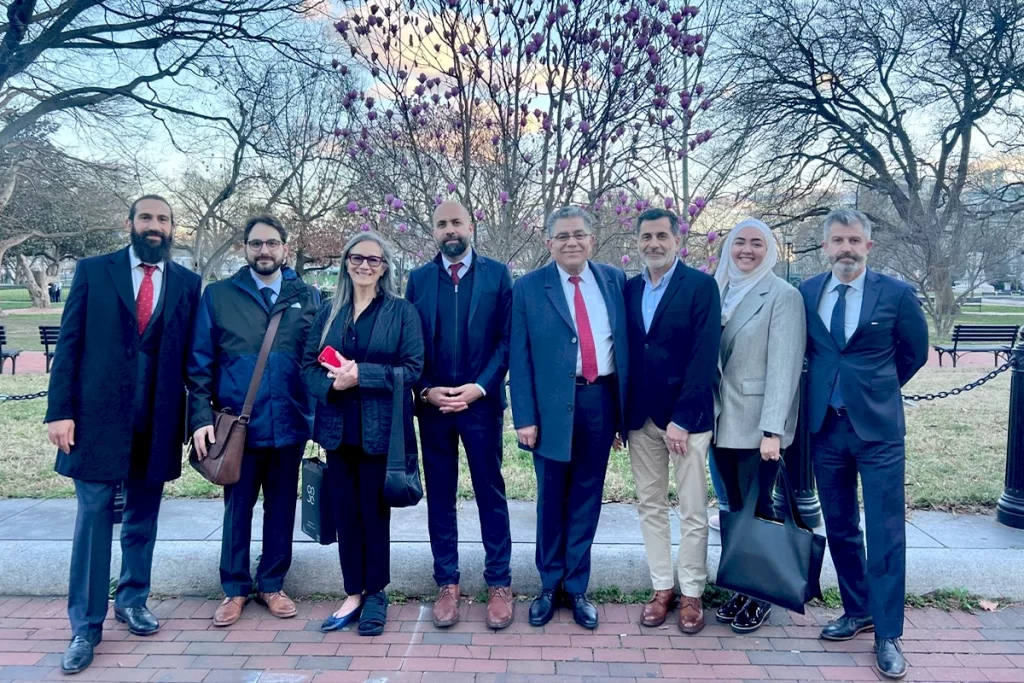
A series of advocacy meetings were conducted in The Hague to call for the referral of the situation in Syria to the International Criminal Court (ICC). Discussions focused on integrating the issue into international legal dialogues and increasing engagement from key stakeholders. These efforts reinforced support for the initiative, with a particular focus on securing leadership for the referral process and continuing momentum gained in previous advocacy efforts.
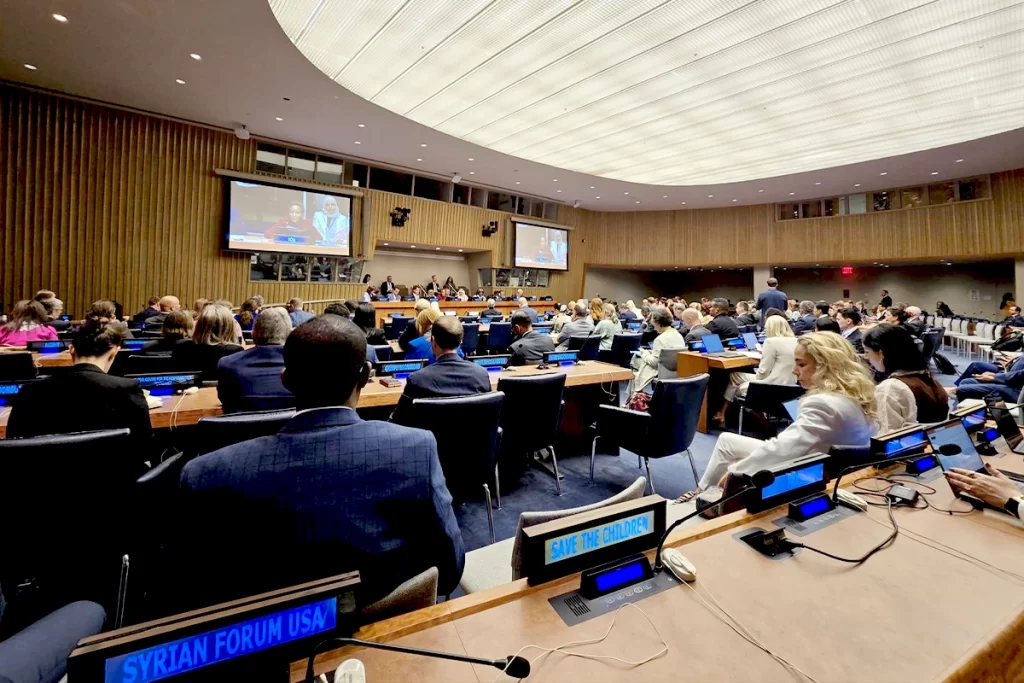
A side event titled “Redeeming the ICC Mandate: Possibility for Referring the Situation in Syria Under Article XIV” was co-organized by the Syrian Forum, the Syrian Center for Media and Freedom of Expression (SCM), the Atlantic Council (AC), and Legal Action Worldwide (LAW) during the 23rd session of the Assembly of States Parties to the Rome Statute of the International Criminal Court (ICC). The event highlighted the critical role the ICC could play in addressing crimes committed in Syria, emphasizing the importance of referring to the Syrian situation under Article 14 of the Rome Statute.
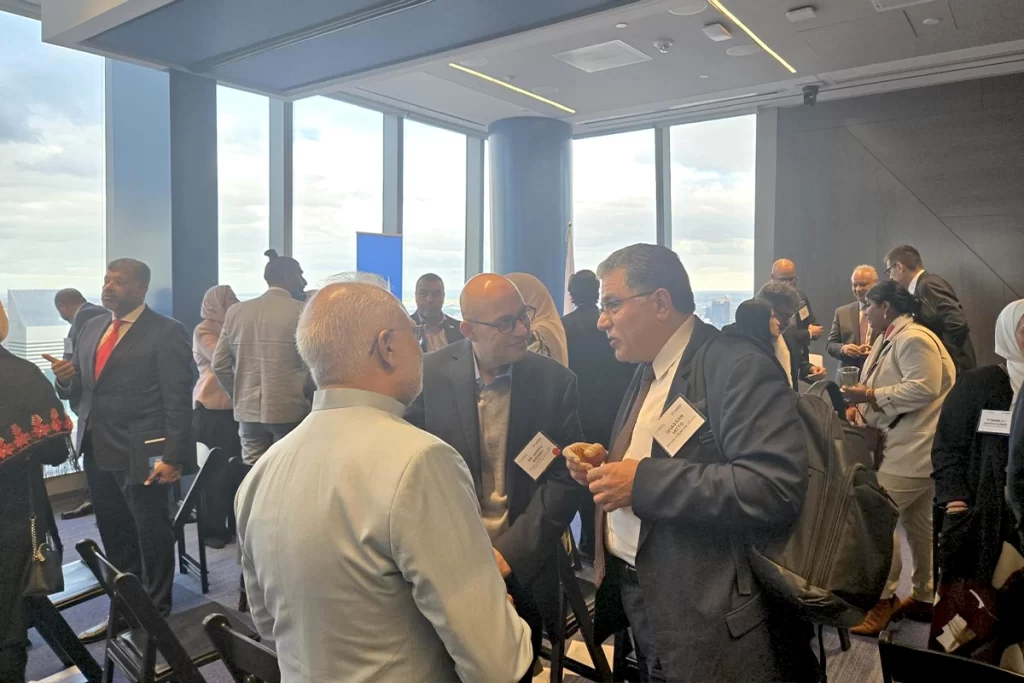
In collaboration with Legal Action Worldwide and the European External Action Service Liaison Office to the International organizations, the Syrian Forum hosted a post-ASP-23 roundtable in The Hague titled “Referring Syria to the ICC: Exploring Current Options.”

The event gathered key international stakeholders to advance leadership efforts for justice and accountability in Syria. Discussions focused on mobilizing support for an ICC referral and strengthening momentum within diplomatic and legal circles.
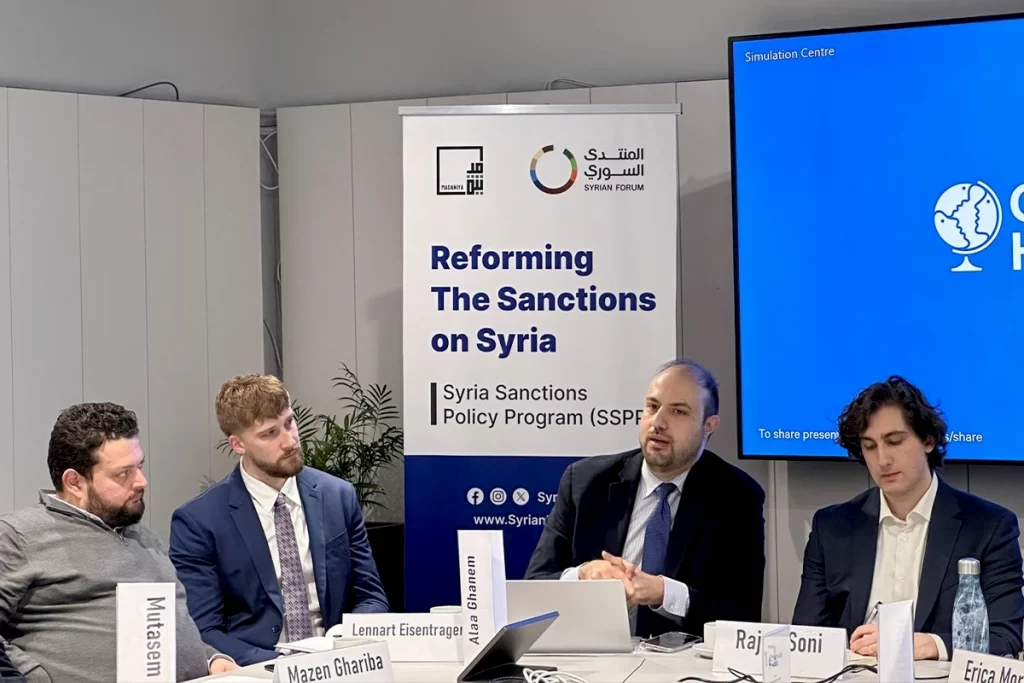
Advancing Justice Through Advocacy
Through persistent advocacy, the Syrian Forum successfully contributed to the inclusion of justice-oriented language in UN General Assembly Resolution A/3.C/79/L.45, urging ICC member states to explore all avenues for referring the Syrian file to the Court. The resolution, adopted by 85 countries, condemns ongoing human rights violations in Syria and stresses the need for accountability under international law. This achievement resulted from a year of dedicated engagement, including high-level advocacy tours in The Hague, New York, and Geneva, side events, expert consultations, and legal studies.
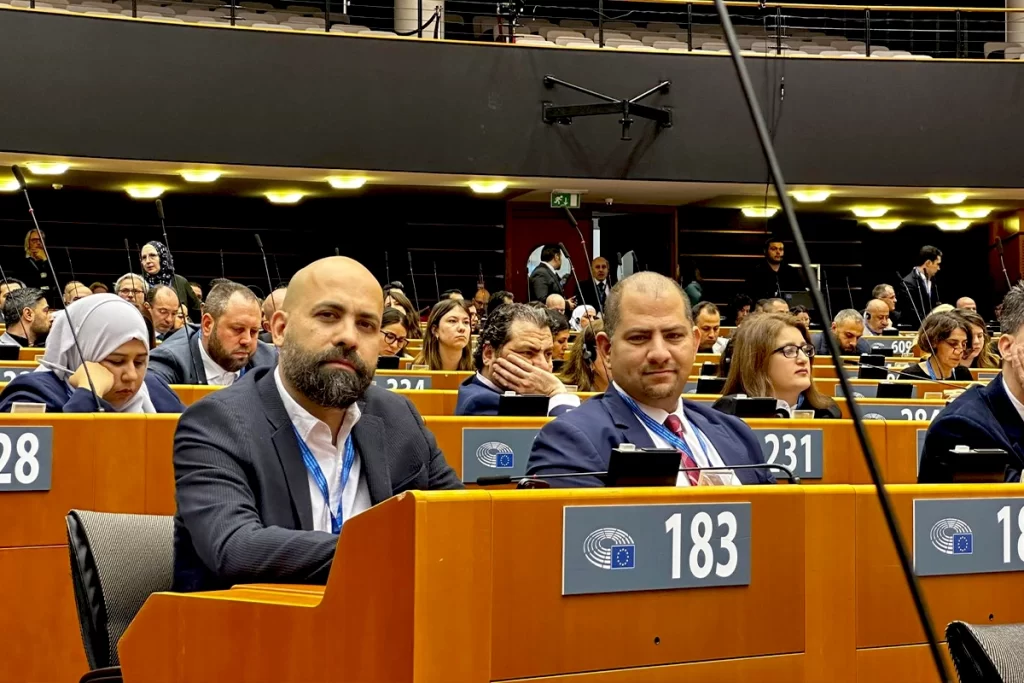
Emphasizing Cooperation with Other Syrian NGOs to Advance Our Policy Priorities
